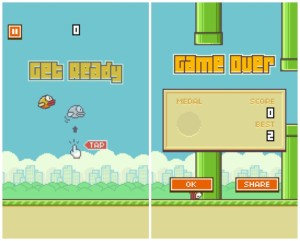To many aspiring programmers, creating a game whose popularity spreads like wildfire would seem to be a great stroke of luck. However, as the simple-yet-infuriatingly hard game known as “Flappy Bird” rose to the top of the Apple App Store and Google Play, its creator, Dong Nguyen, demonstrated increasing amounts of stress and disappointment over his twitter account. Eventually, he made the decision to pull the game off the App Store and Google Play, despite speculation that he was generating as much as $50,000 per day in ad revenue. In his first interview since taking down the game, Dong acknowledges that the game is wildly profitable, yet still elaborates on why he felt it was right to take it down. In short, Dong stated that Flappy Bird “was designed to play in a few minutes when you are relaxed”, but that it turned into “an addictive product”.
While analyzing the moral implications of a game creator taking down his own free game may seem trivial, there are still some interesting questions to be raised. Was what Dong did the right thing to do? From an act utilitarian standpoint, it would seem that the small amount of relief Dong can now experience is much less important than the millions of people who enjoy the game, making Dong’s choice wrong. Or perhaps these players are subconsciously unhappy, but are too addicted to the game to realize its toll. Furthermore, the moral rights theory approach would likely say that Dong has complete control to do what he wants with the game, seeing as it is a product of his own skill and creativity. Does anyone else think removing Flappy Bird was or was not justified?


4 Responses to Flappy Bird and Unhappy Dong